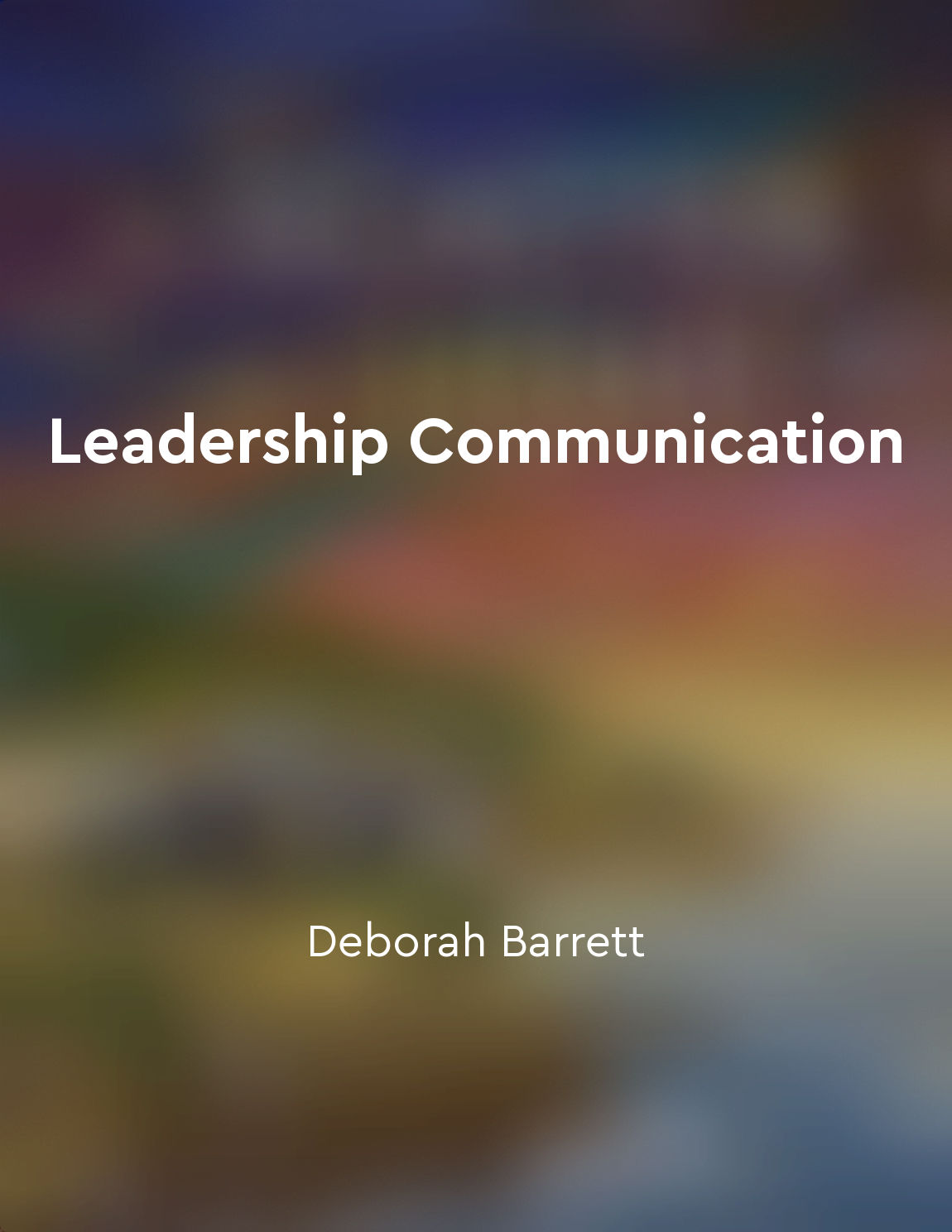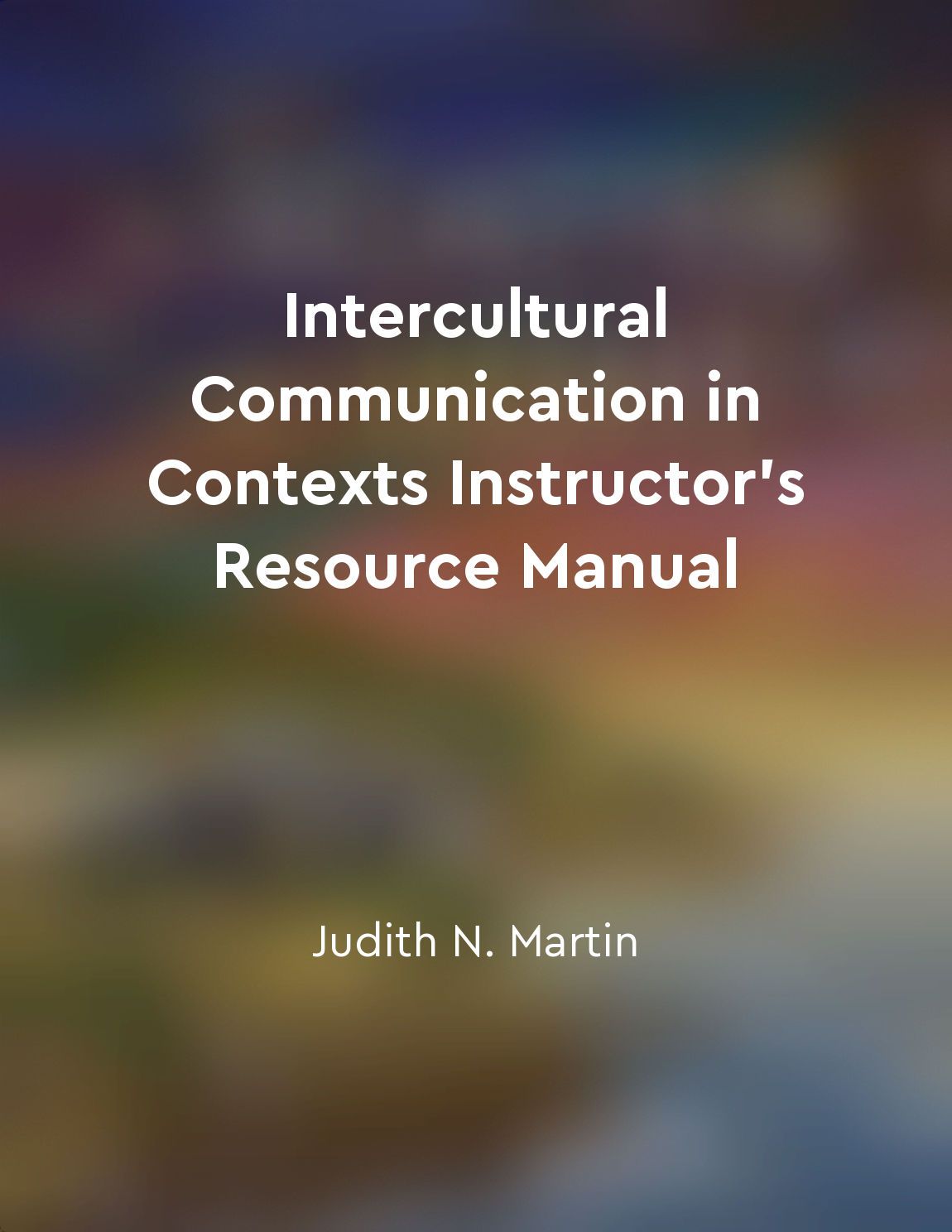Context shapes the way we communicate from "summary" of Contextual Communication Organization & Training by Diane M. Hoffmann
Communication is not a one-size-fits-all endeavor. It is influenced by a multitude of factors, one of the most significant being context. Context refers to the circumstances surrounding a communication exchange, including the physical environment, the participants involved, their relationship, and the cultural background in which the communication takes place. These contextual factors play a crucial role in shaping the way we communicate. The physical environment in which communication occurs can have a significant impact on how messages are conveyed and interpreted. For example, a formal meeting room setting may lead to more structured and professional communication, while a casual setting like a coffee shop may promote more relaxed and informal conversation. The physical context sets the tone for the communication exchange and influences the way participants interact with each other. Another important aspect of context is the relationship between the participants. Communication between close friends or family members may be more casual and familiar, while communication between strangers or colleagues may be more formal and reserved. The nature of the relationship between individuals affects the tone, content, and style of communication, as well as the level of trust and understanding between them. Cultural background is also a key contextual factor that shapes communication. Cultural norms, values, beliefs, and practices influence how individuals express themselves, interpret messages, and understand the world around them. What is considered appropriate or effective communication in one culture may be perceived differently in another culture. Being aware of cultural differences and adapting communication strategies accordingly is essential for effective cross-cultural communication.- Context plays a fundamental role in shaping the way we communicate. By understanding and considering the various contextual factors at play, we can tailor our communication strategies to be more effective and impactful. Whether it is adjusting our language and tone based on the physical environment, adapting our communication style to suit the relationship between participants, or being mindful of cultural differences, being contextually aware is essential for successful communication in any setting.
Similar Posts
Cultivate a genuine curiosity about others
To truly understand someone, you must cultivate a genuine curiosity about them. This means taking a sincere interest in who the...
Understand the different ways people process information
To truly master the art of persuasion, it is crucial to understand the different ways in which people process information. Each...

Nonverbal communication plays a significant role in leadership
Nonverbal communication is a critical component of effective leadership. It encompasses a variety of nonverbal cues, such as fa...
Effective listening is key to effective verbal communication
Effective verbal communication is not just about speaking, but also about listening. The two go hand in hand, with each being e...
Set clear boundaries to maintain power
Establishing clear boundaries is crucial when it comes to maintaining power in social interactions. By clearly defining limits ...

Language barriers can create misunderstandings
When individuals from different cultural backgrounds communicate, language barriers can often lead to misunderstandings. These ...
Building trust and rapport
To build trust and rapport, it is important to establish a sense of connection with others. This involves being present in the ...
Stay present in conversations
The key to successful communication lies in being fully engaged and attentive when interacting with others. This means actively...

Show interest in the other person's personal experiences
To truly engage in meaningful small talk, it is crucial to show genuine interest in the personal experiences of the other perso...

Trust is the foundation of effective communication
Trust is indeed the foundation of effective communication. When we trust someone, we are more likely to be open, honest, and vu...

